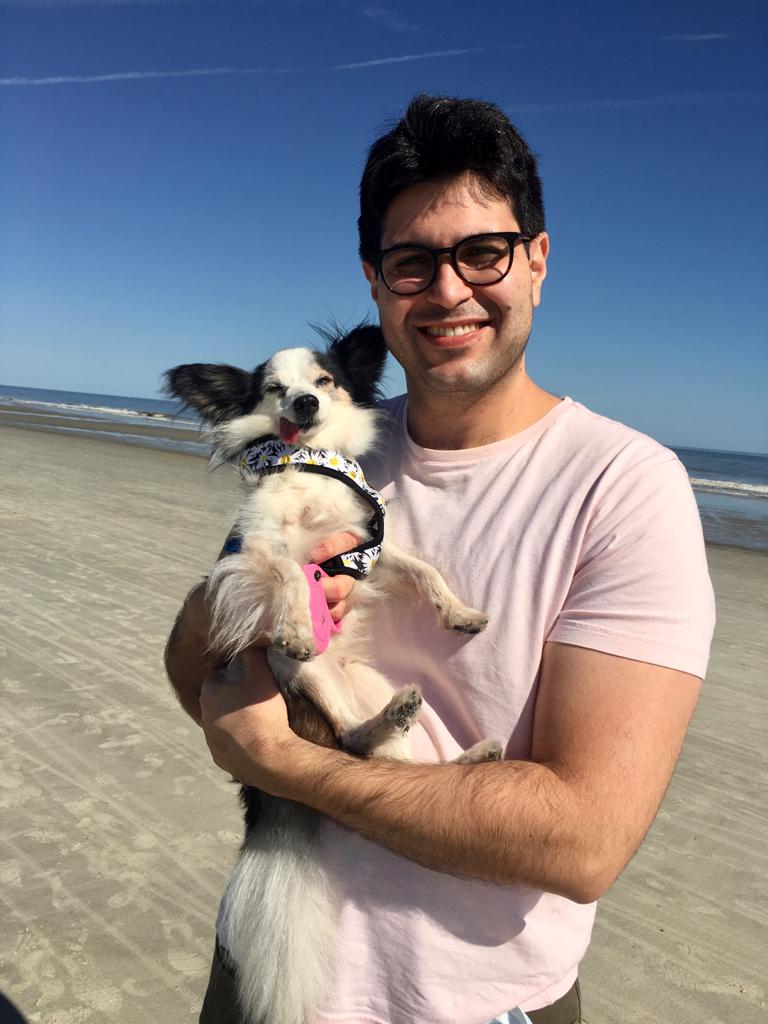Ryan Ghusayni, MD, has been fascinated by neurology since he was a medical student, when he saw how neurologists could pinpoint the location of lesions causing an ailment, and then use that knowledge to improve the lives of patients living with neurological conditions. Now, in his third year of his residency at Duke, he’s building his own clinical knowledge and expertise with the hopes of a career helping patients with complex neuromuscular conditions. In this week’s “Spotlight” interview, Ghusayni talks to us about his time as a resident, his previous experience conducting research at Duke Pediatrics, and enjoying exercise, board games, and trying new cuisines when he’s not at Duke.
What are your current responsibilities as a Senior Assistant Resident? What does a typical day look like for you?
My daily responsibilities vary based on the rotation I am on, and I welcome the diversity of experiences. Some of the responsibilities of this year include working on the inpatient consult service, learning how to perform nerve conduction studies and needle electromyography to diagnose peripheral nerve and muscle diseases, reading electroencephalograms, and working in the neuro-oncology clinic.
How and when did you first get interested in neurology? What interests you the most about neuromuscular medicine?
I first became interested in neurology during medical school. I was fascinated by the neuroscience course I studied during my pre-medical courses, and the clinical experiences I had during my clinical years really solidified my interest in the field. I found it interesting how neurologists go about localizing the lesion that is causing a patient's ailments, and I was impressed by how knowledge of neuroanatomy and neuropathology has a tangible impact on the lives of patients living with neurological disorders.
The field of neuromuscular medicine takes that importance of localization to the next level. A neuromuscular neurologist's physical exam and subsequent EMG (electromyography study) not only elegantly diagnose a patient with a disorder at a particular area of the peripheral nervous system, but also significantly impact the therapy that will be used to treat or ameliorate these conditions. This is not to mention the exciting advances that are happening in the field of neuromuscular therapeutics, such as the invention of antisense oligonucleotides to treat genetic neuromuscular conditions.
What plans do you have for after your residency? If you could have any job in the world, what would it be?
After residency, I plan to pursue a one-year fellowship in neuromuscular medicine. I hope to use the expertise I gain from that year to help patients with complex neuromuscular conditions receive the care they need. I also hope to perform electrodiagnostic studies a couple of days out of my week, in addition to seeing patients with general neurological illnesses. My ideal job would be running a neuromuscular clinic and EMG lab, where I can provide accurate electrodiagnostic studies for my and other physicians' patients on a large scale.
What is one experience from your residency so far that stands out as particularly memorable or helpful?
While not a single experience, the time I spend with my co-residents stands out to me the most. We get along well and there are always a lot of laughs when we are together. I am grateful for those relationships.
Before coming to the Neurology Department you spent a year performing pediatric neurology research with Duke Pediatrics. What was that experience like, and how does that experience inform your work as a resident?
I gained significant research experience during that year. I learned how to write manuscripts fit for publication, and my mentor Dr. Mikati taught me the importance of being critical of the work I produce. I also learned how to use a software that can automatically segment brain MRIs and give valuable information regarding the change in volumetrics of different brain regions over time. This experience has informed my work as a resident by giving me an insider view on how research is conducted and published and thus has enabled me to interpret studies critically.
What are you most looking forward to once the COVID-19 pandemic is over?
I am looking forward to so many things. I would like to watch movies in a theater again. I would like to travel to new countries. I would like to go back to playing basketball with my friends. I can't wait!
What other passions or hobbies do you have outside of the Department?
I enjoy going on runs and strength training. I also enjoy sampling the many different cuisines available in the Triangle. During the pandemic, I have taken up board games and discovered that I am in fact fiercely competitive.
Ghusayni and his dog Quaid share a photo of themselves at the beach.
